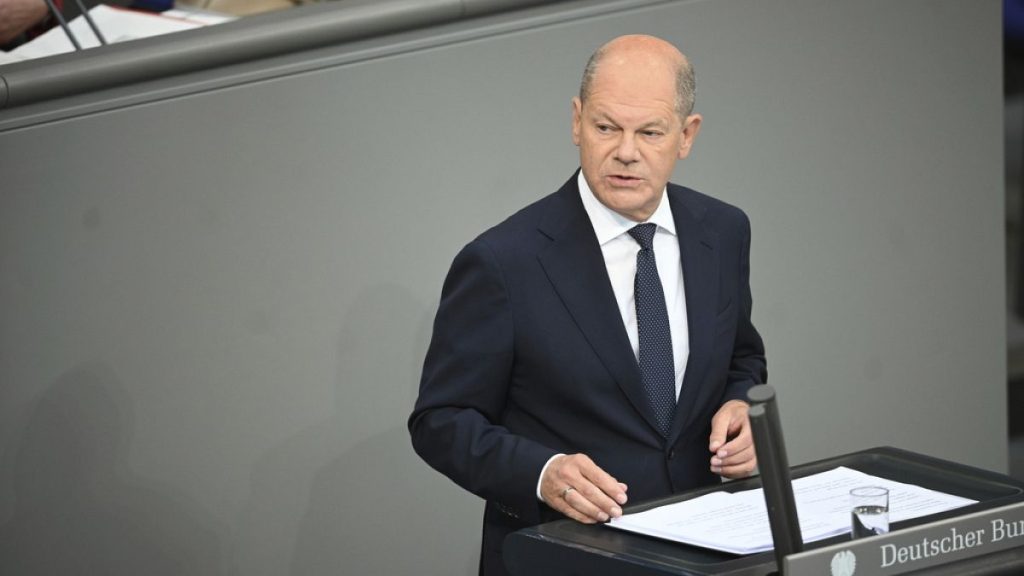German Chancellor Olaf Scholz recently announced plans to toughen up deportation policies in response to a series of violent incidents in the country, including a stabbing at a far-right rally in Mannheim. Scholz emphasized the need to deport criminals convicted of serious crimes back to their home countries, including high-risk nations like Syria and Afghanistan. He stated that serious criminals and terrorist threats have no place in Germany, and his government is exploring ways to legally implement these changes. Scholz also indicated that those who glorify and celebrate terrorist crimes will also face deportation, signaling a significant shift in policy.
The violent incidents in Mannheim, particularly the stabbing of a policeman at a far-right rally, have highlighted the need for tighter deportation regulations. The suspected perpetrator of the attack was a 25-year-old man from Afghanistan who migrated to Germany in 2013 and had legal residence in the country. The far-right Alternative for Germany party has been critical of the government’s immigration policies, prompting Chancellor Scholz to take a stricter stance on deportations. The ruling coalition, which includes the Social Democratic Party (SPD), Greens, and Free Democratic Party (FDP), has pledged to crack down on migration following the passing of a law in January making it easier to deport rejected asylum seekers.
Chancellor Scholz’s call for tougher deportation measures comes amid the backdrop of heightened political pressure, especially from far-right groups, in response to the recent violent incidents. The decision to consider deporting criminals to countries like Syria and Afghanistan represents a significant departure from past policies. Germany had halted deportations to Afghanistan in 2021 after the Taliban took over, but the recent security threats have reignited the debate over deportation policies. While some political parties, like the Greens, have voiced concerns over human rights implications, Scholz and his coalition partners are prioritizing national security and public safety in their approach.
The escalating violence in Mannheim and other parts of Germany has underscored the urgency of addressing security concerns and strengthening deportation measures. Chancellor Scholz’s remarks reflect a determination to crack down on criminal activities and terrorist threats, regardless of the perpetrators’ origins. By emphasizing the need to deport individuals convicted of serious crimes, including those who support terrorist activities, Scholz is sending a clear message that Germany will not tolerate such behavior within its borders. The proposed changes in deportation regulations aim to enhance the country’s security infrastructure and prevent further incidents of violence.
The political landscape in Germany is evolving in response to the recent challenges posed by violent incidents and security threats. Chancellor Scholz’s decisive stance on deportation policies is a direct response to growing public concerns and pressures from opposition parties. By prioritizing national security and law enforcement measures, Scholz is seeking to restore public confidence in the government’s ability to address security issues effectively. The proposed changes in deportation regulations reflect a willingness to take tough action against those who pose a threat to public safety, signaling a shift towards a more stringent approach to security and immigration policies.
In conclusion, Chancellor Scholz’s announcement to toughen up deportation policies in response to recent violent incidents underscores the government’s commitment to enhancing national security and public safety. The focus on deporting criminals convicted of serious crimes, including those who support terrorist activities, reflects a proactive approach to addressing security threats. The proposed changes in deportation regulations are aimed at strengthening Germany’s security infrastructure and preventing further incidents of violence. Amid heightened political pressure and concerns over security, Scholz’s leadership in prioritizing national security measures signals a shift towards a more robust response to security challenges.


